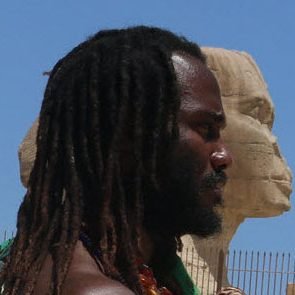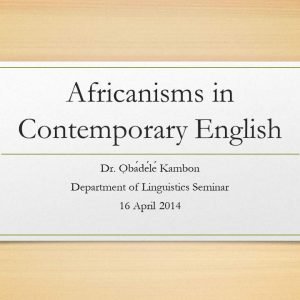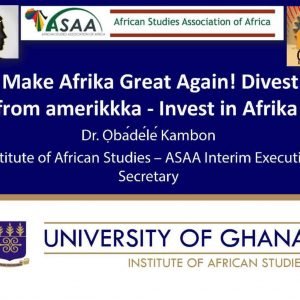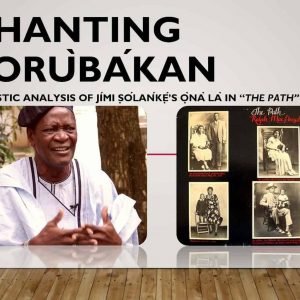$20.00
Description
Ọbádélé Kambon, PhD: Black=Afrikan Lives Matter and Decolonizing the Academy
Note that Afrika (n.)/Afrikan (adj.) is preferred to “Africa” as the word is consistently spelled in various Afrikan languages with a /k/ (cf. Yorùbá Áfríkà; Akan Afrika; Kiswahili Afrika; isiZulu iAfrika; Kikongo Afelika; Hausa Afirka; Kirundi Bufirika; Gĩkũyũ Abĩrika; Igbo Afrịka; Luganda Afirika; Lingála Afríka; Malagasy Afrika; Sesotho sa Leboa Afrika; Oromoo Afrikaa; Fulfulde Afirik; Setswana Aferika; Tsivenda Afurika; Tsisonga Afrika; Siswati Í-Afríka; Soomaaliga Afrika; Kinyarwanda Afurika, etc.) noting that Afrikan languages by-and-large do not use a /c/ for a hard /k/ sound.
Video (Viewable Online) and Secured PDF of PowerPoint Presentation (downloadable) Combo Bundle
Video Duration: 52:25
Secured PDF of Lecture Slides: 55 Slides
Abstract: In 2010 Kofi Adu-Brempong an unarmed disabled Ghanaian PhD student was shot by University of Florida police officers in his own home. At a demonstration in London in May, 2015, the name on picket signs was Julian Cole, a 21-year-old Black Briton who has been in a vegetative state since 2013, when police allegedly left him with spinal injuries uncannily similar to those suffered by Freddie Gray in the back of a police van in Baltimore in April 2015. Twelve years after the end of apartheid, Black students at a High School for Girls in Pretoria, South Africa, were told they must chemically straighten their hair. And almost 70 years after Sergeant Adjetey, Corporal Attipoe and Private Odartey Lamptey were murdered by colonial officers for seeking independence, not a single statute commemorating them stands on the University of Ghana campus while one of racist Gandhi has been erected. Ghana also spends over $1.5bn on food imports that include rice, sugar, fish, poultry and plantain; $70m on used clothing; and we have the dubious distinction of hosting the largest e-dump in the world!
The status of people of African descent in the Diaspora, and the status of Africans on the continent both have historical ties to racism, slavery, colonialism and neo-colonialism. In this panel discussion we address the question of Africans as producers of knowledge, an African-centred knowledge, and how this plays out (or not) in African academic institutions.



![Why Kemet (Ancient Egypt) Matters [119 Slides!!!]](https://obadelekambon.com/wp-content/uploads/2019/11/Why-Kemet-Matters-Dr-Obadele-Kambon-300x300.jpg)


Leave a Reply